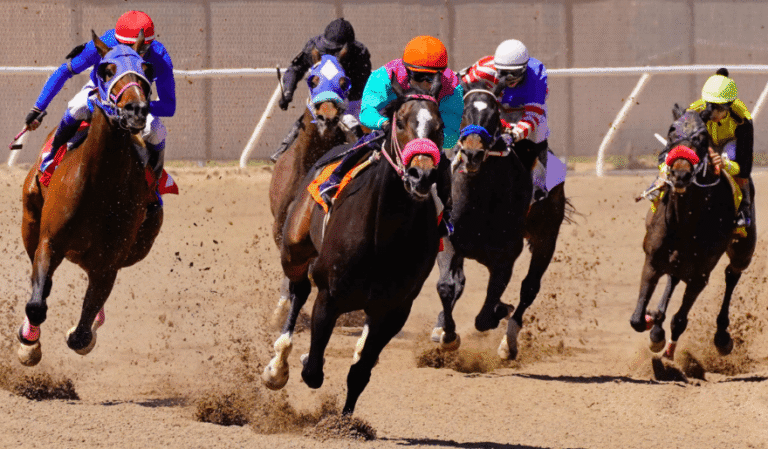When most people think of horse racing, their attention immediately goes to the powerful, sleek racehorses charging down the track. However, behind every winning horse is a skilled jockey whose strategy, timing, and decision-making often determine the outcome of a race. A jockey may be small in stature, but their influence is immense. Horse racing is not only about speed and strength—it’s about the partnership between horse and rider.
This article explores the importance of jockeys in horse racing success and why they are often the unsung heroes of the sport.
1. The Role of a Jockey
At its core, the jockey’s responsibility is to guide the horse safely and strategically through a race. Their role is far more complex than simply sitting on the saddle.
- Balance and Positioning – Jockeys maintain a crouched, aerodynamic stance to minimize drag while ensuring the horse can run freely.
- Pacing – Knowing when to push the horse and when to conserve energy is critical. Misjudging pace can cost a victory.
- Navigating the Field – Races can be crowded and chaotic. A jockey must maneuver the horse, avoid collisions, and find the best racing line.
- Communication with the Horse – Using subtle cues like reins, heels, and body weight, jockeys guide their horses with precision.
2. Physical Demands on Jockeys
Despite their small size, jockeys are some of the most disciplined athletes in the world.
- Weight Management – Most jockeys must maintain a body weight between 108–118 pounds (49–54 kg), often requiring strict diets and training regimens.
- Strength and Endurance – Jockeys must control half-ton animals running at speeds of up to 40 mph, demanding both upper and lower body strength.
- Injury Risk – Horse racing is among the most dangerous sports. Falls, collisions, and high-speed accidents place jockeys at constant risk of injury.
The physical demands highlight just how tough and resilient these athletes must be.
See also: Famous Horse Racing Tracks Around the World
3. Strategy and Race Tactics
A jockey’s race-day decisions can make the difference between victory and defeat.
- Breaking from the Gate – A strong, clean start is vital. Jockeys must react instantly to position their horse well.
- Positioning During the Race – Some horses perform better leading early, while others excel by holding back and surging late. Jockeys must adapt strategies accordingly.
- Final Stretch Judgment – Timing the finishing sprint requires extraordinary judgment. Launch too early, and the horse may tire; too late, and the chance may be gone.
- Reading Opponents – Top jockeys watch rivals, adjusting their own tactics to block challenges or find openings.
Legendary jockeys like Lester Piggott, Frankie Dettori, and Bill Shoemaker became icons not just for winning but for their unmatched tactical brilliance.
4. Building Partnerships with Horses
The bond between a jockey and their horse is often underestimated. Success doesn’t come from strength alone but from understanding.
- Trust and Communication – Horses sense their rider’s confidence and respond to calm, consistent guidance.
- Knowing the Horse’s Personality – Some horses are aggressive, while others are nervous. Jockeys adjust their style to suit each horse.
- Training Together – Jockeys often work closely with trainers and exercise riders, building familiarity with the horse’s strengths and weaknesses before race day.
This partnership is what transforms a good horse into a champion.
5. Jockeys and Trainers: A Team Effort
Behind every successful racehorse is a team, and jockeys are a crucial part of that unit.
- Feedback Loop – Jockeys provide trainers with detailed post-race analysis on how the horse performed and where improvements can be made.
- Adapting Instructions – Trainers may set a race plan, but jockeys must adjust in real time depending on race conditions.
- Shared Responsibility – While trainers prepare the horse, the jockey must execute under pressure. Together, they form a winning formula.
6. Famous Examples of Jockey Impact
History provides countless examples of how jockeys shaped racing legends.
- Secretariat & Ron Turcotte – Turcotte perfectly managed Secretariat’s pace in the 1973 Triple Crown, allowing the horse to unleash record-breaking performances.
- Frankie Dettori – Known for his flamboyant style and brilliant tactics, Dettori’s rides have often elevated horses to victory in Europe’s biggest races.
- Pat Day – Renowned for his patience and perfect timing, Day’s mastery of late finishes earned him thousands of wins.
These examples remind us that even the greatest horses need expert riders to unlock their full potential.
7. The Mental Game
Beyond strength and tactics, jockeys must also possess mental toughness.
- Split-Second Decisions – With races decided by fractions of a second, hesitation is costly.
- Composure Under Pressure – The ability to remain calm in high-stakes events like the Kentucky Derby or Royal Ascot is vital.
- Resilience – Losses, injuries, and strict weight demands take a toll. The best jockeys bounce back stronger.
Conclusion
Jockeys may not always receive the spotlight, but their role in horse racing success is undeniable. They are the strategists, the athletes, the partners, and the decision-makers who help turn potential into victory. Without skilled jockeys, even the fastest horse in the world may never cross the finish line first.
The importance of jockeys lies not only in their physical abilities but also in their intelligence, courage, and bond with the horse. In a sport where fractions of a second decide glory, the jockey is the difference-maker—an essential partner in creating racing legends.
